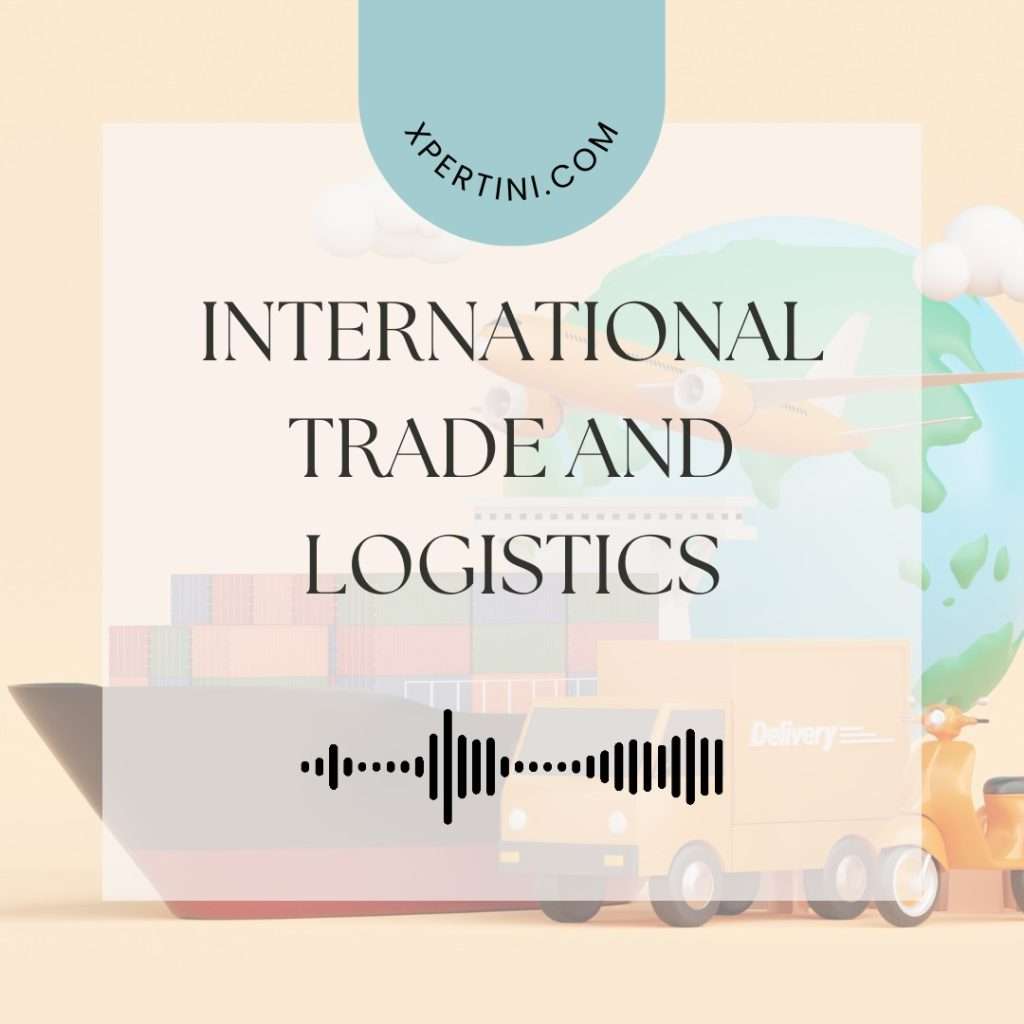International Trade and Logistics
Course Summary
Explore the landscape of international trade and logistics with our comprehensive course, designed to equip you with the knowledge and skills needed to navigate the complexities of global commerce. Delve into the fundamental principles and significance of international trade, gaining valuable insights into its pivotal role in driving economic growth and fostering global connectivity.
Start on a journey through the evolution of international trade systems, examining the historical events and trade theories that have shaped contemporary trade dynamics. Analyze the multifaceted impact of government policies, trade agreements, and regulatory frameworks on global trade patterns, gaining an understanding of the geopolitical factors influencing international commerce.
Dive deep into the intricacies of transportation modes and logistics management, comparing and contrasting air, sea, road, and rail transport for international shipments. Learn best practices in supply chain management, inventory optimization, and warehousing in a global context, enhancing your ability to streamline operations and maximize efficiency.
Equip yourself with essential skills in risk management, trade documentation, and compliance, enabling you to navigate regulatory requirements and mitigate potential disruptions in the supply chain. Explore emerging trends and innovations in trade finance, payment methods, and sustainable practices, positioning yourself at the forefront of the rapidly evolving global trade landscape.
Whether you’re an aspiring professional, business owner, student, or policymaker, this course offers invaluable insights and opportunities to excel in the field of international trade and logistics. Join us and start a journey towards unlocking your potential in the global marketplace.
Furthermore, gain a comprehensive understanding of the diverse career opportunities available in international trade and logistics. From supply chain management to government policymaking, this course equips you with the skills and qualifications necessary to thrive in various roles within the global trade ecosystem. Whether you aspire to pursue a career in multinational corporations, logistics firms, government agencies, or academic institutions, our course provides a solid foundation for success.
With a focus on practical application and real-world scenarios, you’ll emerge prepared to tackle the challenges and seize the opportunities inherent in today’s interconnected global economy. Join us and begin a transformative journey towards becoming a proficient and strategic player in the domain of international trade and logistics.
Course Overview
International trade and logistics are integral components of the global economy, facilitating the movement of goods and services across borders. This course provides a comprehensive understanding of the principles, practices, and challenges in international trade and logistics. Participants will explore key concepts, strategies, and regulations governing the exchange of goods and services between nations, as well as the logistics processes involved in transporting these goods efficiently.
Course Objectives
- Understand the fundamentals of international trade and its significance in the global economy.
- Analyze the various modes of transportation and logistics operations involved in international trade.
- Evaluate the impact of government policies, regulations, and international agreements on trade and logistics.
- Develop skills in managing supply chains and mitigating risks associated with international trade.
- Explore strategies for optimizing inventory management, warehousing, and distribution in a global context.
Course Outcomes
- Identify key stakeholders involved in international trade and logistics.
- Analyze the economic, political, and cultural factors influencing global trade patterns.
- Evaluate different transportation modes and their suitability for international shipments.
- Assess the role of technology in enhancing efficiency and transparency in logistics operations.
- Apply principles of risk management to mitigate potential disruptions in the supply chain.
- Understand the documentation requirements and compliance standards for international trade.
- Analyze the impact of tariffs, trade agreements, and trade barriers on international commerce.
- Develop strategies for managing inventory and optimizing warehousing facilities.
- Explore sustainable practices and ethical considerations in international trade and logistics.
- Identify emerging trends and innovations shaping the future of global trade and logistics.
Course Audience
- Aspiring professionals seeking careers in international trade and logistics.
- Business owners and managers involved in global supply chain management.
- Students and academics interested in understanding the complexities of international trade.
- Government officials and policymakers responsible for trade regulations and policies.

